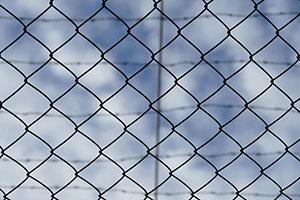The Museums Association Esmee Fairburn Collection Fund has awarded £120,000 to the National Justice Museum to introduce its unique 200-year-old HM Prison Service collection to a wider audience.
The funding supports a three-year project ‘Ingenuity, Creativity, Hope’ involving people in… more
The HMIP report on HM Prison Exeter by Peter Clarke, Her Majesty's Chief Inspector of Prisons:
In accordance with the Protocol between HM Chief Inspector of Prisons and the Ministry of Justice dated 30 November 2017, I am writing to you to invoke the Urgent Notification (UN) process in respect of HM Prison Exeter.
An unannounced inspection of HM Prison Exeter took place between 14 and 24 May 2018. This inspection identified a number of significant concerns with regard to the treatment and conditions of prisoners. As required by the process, I am therefore writing to give you formal notification of my decision to invoke it. At this stage I shall also set out an indication of the evidence that underpins that decision, and the rationale for why I believe it is necessary. In addition, I attach a summary note which details all the main judgements that followed this inspection, and includes the priorities addressed in this letter. The summary note is drawn from a similar document provided to the Acting Governor at the end of the inspection last week. He has been informed of my intention to invoke the UN process. I shall, as usual, publish a full inspection report in due course.
The UN process requires me to summarise in this letter the judgements that have led to significant concerns, and to identify those issues that require improvement. A decision to invoke the UN process is determined by my judgement, informed by relevant factors during the inspection that, as set out in the Protocol, may include:
• Poor healthy prison test assessments (HMI Prisons’ inspection methodology is outlined in the HMI Prisons Inspection Framework); 30/05/18-justicesecretary-exeter www.justiceinspectorates.gov.uk/hmiprisons
• The pattern of the healthy prison test judgements; 
• Repeated poor assessments;
• The type of prison and the risks presented;
• The vulnerability of those detained;
• The failure to achieve recommendations;
• The Inspectorate’s confidence in the prison’s capacity for change and improvement.
The Protocol sets out that this letter will be placed in the public domain, and that the Secretary of State commits to respond publicly to the concerns raised within 28 calendar days. The response will explain how outcomes for prisoners in the institution will be improved in both the immediate and longer term.
The principal reasons I have decided to invoke the UN protocol in respect of HMP Exeter following this most recent inspection are because since the last full inspection in August 2016, safety in the prison has significantly worsened in many respects, and has attracted our lowest possible grading of ‘poor’. There have been six self inflicted deaths, five of which were in 2017. Despite some creditable efforts to implement recommendations from the Prisons and Probation Ombudsman following those deaths, the overall level of safety at HMP Exeter is unequivocally poor.
Self harm during the past six months is running at a higher rate than in any similar prisons. It has risen by 40% since the last inspection. Assaults against both prisoners and staff are among the highest we have seen, and the use of force by staff is inadequately governed. Meanwhile, illicit drugs are rife in the prison, nearly a quarter of prisoners are testing positive, and all this is taking place in a prison where the living conditions for too many are unacceptably poor. During the inspection we saw many examples of a lack of care for vulnerable prisoners which, given the recent tragic events in the prison, were symptomatic of a lack of empathy and understanding of the factors that contribute to suicide and self harm.
The last inspection of HMP Exeter took place in August 2016. Outcomes for prisoners were found to be not sufficiently good in all four of our healthy prison tests. In terms of safety the report noted:
‘Levels of violence were high and many prisoners said that they felt unsafe. The levels of self harm were high. There had been 10 self inflicted deaths since the previous inspection.’
At that time we made 14 recommendations in respect of safety, including two main recommendations. One was intended to address the fact that too many prisoners felt unsafe, and the other focused on the poor governance of the use of force. During this latest inspection we found that neither of these main recommendations had been achieved, and in fact the situation in both respects had deteriorated. Overall only three out of the 14 safety-related recommendations had been fully achieved.
For more information about HM Prison Exeter please visit www.justiceinspectorates.gov.uk



